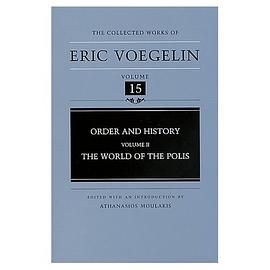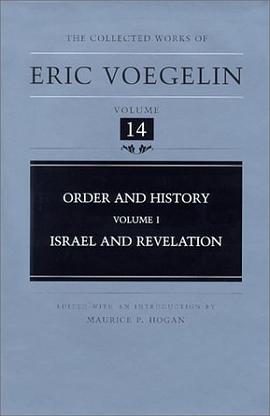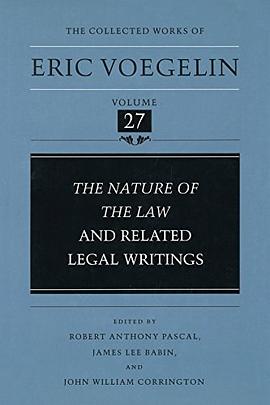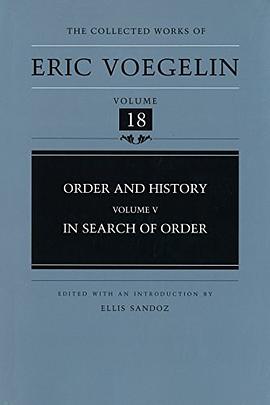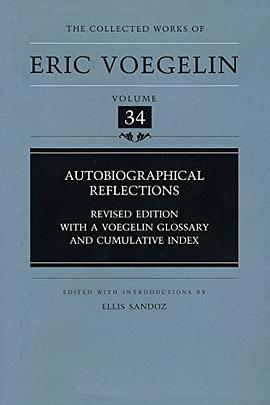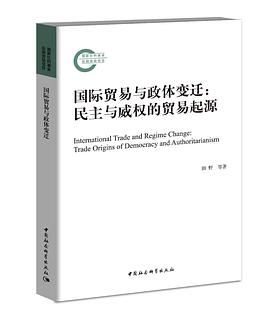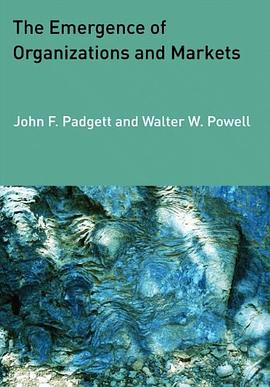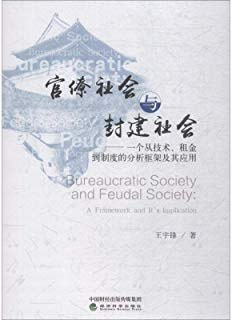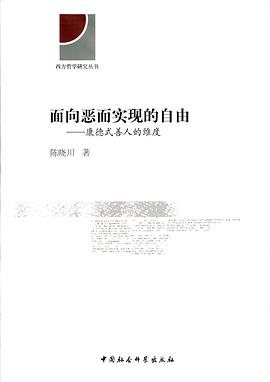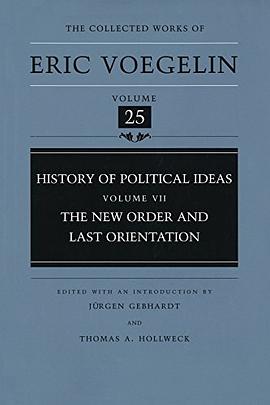

具体描述
In The New Order and Last Orientation, Eric Voegelin explores two distinctly different yet equally important aspects of modernity. He begins by offering a vivid account of the political situation in seventeenth-century Europe after the decline of the church and the passing of the empire. Voegelin shows how the intellectual and political disorder of the period was met by such seemingly disparate responses as Grotius's theory of natural right, Hobbes's Leviathan, the role of the Fronde in the formation of the French national state, Spinoza's Tractatus Theologico-Politicus, and Locke's Second Treatise, the blueprint of a modern middle-class society. By putting these responses and the thought of Montesquieu, Hume, and others in the context of the birth pains of the national state and the emergence of a new self-understanding of man, Voegelin achieves a brilliant mixture of political history and profound philosophical analysis.
Voegelin's verdict of modernity is pronounced most powerfully in the opening part of "Last Orientation," in the chapter entitled "Phenomenalism." His discussion of the intellectual confusion underlying the modern project of scientistic phenomenalism is the most original criticism leveled against modernity to date. It is at the same time the first step toward a recovery of reality through philosophy conceived as a science of substance in the spirit of Giordano Bruno. Voegelin's first example of such an effort at recovering reality is the chapter on Schelling, one of the spiritual realists who has not been affected by the prevailing rationalist or reductionist creeds that are part of the modern disorder. Schelling's indirect yet powerful influence on Schopenhauer, Nietzsche, and Freud more than justifies Voegelin's interest in his philosophy and character, even though Voegelin would later distance himself from some of Schelling's positions.
The volume's concluding chapter, "Nietzsche and Pascal," applies the understanding gained from the study of Schelling to the thought of the most powerful critic of the age, Nietzsche. Nietzsche's self-avowed affinity with Pascal provides the key to an analysis of the strengths and weaknesses of his thought and reaffirms the connection that links the beginning of modernity with its most recent crises and the efforts to overcome them.
作者简介
About the Author
Eric Voegelin (1901-1985) was one of the most original and influential philosophers of our time. Born in Cologne, Germany, he studied at the University of Vienna, where he became a professor of political science in the Faculty of Law. In 1938, he and his wife, fleeing Hitler, emigrated to the United States. They became American citizens in 1944. Voegelin spent much of his career at Louisiana State University, the University of Munich, and the Hoover Institution at Stanford University. During his lifetime he published many books and more than one hundred articles. The Collected Works of Eric Voegelin will make available in a uniform edition all of Voegelin's major writings.
About the Editors
Jürgen Gebhardt is Professor of Political Science at the University of Erlangen-Nuremberg in Erlangen, Germany.
Thomas A. Hollweck is Associate Professor of German and Languages at the University of Colorado-Boulder.
目录信息
Part Seven. The New Order
1. The National State 47
§1. Tabula Rasa 47
a. Man Alone
b. The Symbol of Natural Right
c. The Symbol of Science
d. The Problems of the New Era
§2. In Search of Order 52
a. The State of Violence桮rotius's De Jure Belli
b. The Regulation of Violence桽ubjects in International Law
c. The Authority of Rulership
d. Nature桾he Essence of Man
e. Grotius桾he Model Man
f. The Rules of Nature
g. Grotius and Epicurus
§3. Hobbes 59
a. Comparison with Machiavelli and Bodin桾he Problem of Realism
b. The Analysis of Pride
aa. The Mechanical Structure of Man
bb. Loss of the Fruitio Dei
cc. Fruitio Hominis 桾he Contemplation of Power
dd. Madness
c. The Analysis of Fear of Death
d. The Natural Law Concepts
e. The Analysis of Commonwealth and Person
f. Perfection of the Legal Closure of the State
g. Perfection of the Spiritual Closure of the State
h. Control of Opinion
i. Summary: Movement from Below and Pressure from the Top
2. The English Revolution 73
§1. The English Situation 73
§2. James I 74
§3. The Clash with Court and Parliament 76
§4. The Church Constitution桾he Mayflower Compact 76
§5. The Restriction of Royal Power 78
§6. The Trend toward Sovereignty of Parliament 79
§7. The Covenants 79
§8. The Solemn Engagement of the Army 80
§9. The Agreement of the People 81
§10. The Issues of the Franchise 83
§11. The Charge against Charles I桾he Declaration of Independence 84
§12. Massachusetts Bay, Connecticut, Rhode Island 85
§13. Milton 92
§14. Winstanley 96
§15 Harrington 100
3. Cromwell 104
§1. The Wars of the Fronde桽tate vs. Estates 104
§2. The Continent and England桽tate and the Stateless Political Society 106
§3. The Parliament and the State of England 108
§4. The Position of Cromwell 110
§5. Cromwell and the Will of God 110
§6. The Politics of Cromwell 112
4. Fronde and Monarchy in France 115
§1. The Parlement 115
§2. The Cardinal de Retz 118
§3. Louis XIV 121
5. Spinoza 126
§1. Orientalism 126
§2. The Program of the De Intellectus Emendatione 127
§3. Mysticism 128
§4. Esotericism 129
§5. Hobbes and Spinoza 130
§6. Theory of Power 131
§7. Liberalism 133
§8. The Project of Government 134
§9. The Oath 135
6. Locke 137
§1. TheContract Theory 137
§2. The Theory of Limited Monarchy 138
§3. The Relation with Richard Hooker 140
§4. The Victorious Puritan 140
§5. Locke's Writings on Toleration 141
§6. Toleration and the New Pattern of Revolution 142
§7. Facets of Toleration in the Seventeenth Century 144
§8. The Lord's Dutch Lunch 145
§9. God: The Proprietor of Man 145
§10. Man: The Proprietor of Himself 147
§11. The Civil State桵oney and Differentiation of Property 149
§12. The Equal Protection of Inequality 150
§13. Spiritual Disease桾he Revolution-Breeding Element 151
7. Intermission 153
§1. The First Cycle: Order Against Spirit 153
§2. The Second Cycle: The Reassertion of Spirit 155
§3. Spleen and Skepticism 157
a. The Skepticism of Hume
b. Reason and Sentiment
c. Propensities of a Gentleman Spleen
d. The Social Function of Skeptical Reflection
e. Sympathy and Convention
§4. Montesquieu 162
a. Atmosphere of Montesquieu
b. The Anthropological Question
c. The People�Esprit de Lois
d. Contents of the Esprit des Lois
e. A New Sense of History桸ational Destiny
f. The Idea of a Free Government
§5. The Enlargement of the Geographical Horizon: The Biological Diversification of Mankind 169
a. Knowledge of New Worlds桞eginning Sentiment of Relativity
b. The Travel Literature桞uffon's Histoire naturelle
c. The System of Human Races
d. Racial Diversification and Unity of Mankind
e. The Geographical and Historical Horizons
Part Eight. Last Orientation
Introductory Remarks 175
1. Phenomenalism 178
§1. Phenomenalism and Science 178
a. Scientism
b. Phenomenalism and Materialism
c. Definitions
d. Pascal and Phenomenal Speculation
e. Biological Phenomenalism
f. Economic Phenomenalism
g. Psychological Phenomenalism
h. Combination of Types
2. Schelling 193
§1. The Realist in an Age of Disintegration 193
a. Social Isolation of the Realist
b. Philosophical Dilettantism
c. Rationalism
d. Partiality and Inversion
e. Ineffectiveness of the Realist
f. The Influence of Schelling
§2. Elements of Schelling's Position 200
a. Descartes and Post-Cartesian Speculation
b. Critique of the Age
c. The Aphorisms on Reason
§3. Schelling's Speculation 204
a. Return to Bruno
b. Return to Kant
c. Immersion into the Substance of the Universe
d. The Potenzenlehre
§4. Historical Existence: The Key to Speculation 210
a. Historical Existence
b. The Anamnetic Dialogue
c. Anamnesis and History
d. Schelling and Hegel
§5. Orgiastic Existence 214
§6. Promethean Existence 217
a. The Double Life
b. The Inner Return
c. Melancholy and Grace
§7. Political Existence 222
a. The Intelligible Order of Being
b. State and Church桾he Covenant of the Peoples
c. Ideal and Idea
d. The Polis桾he Third Dionysus
e. Mystery and Eschatology
f. The Third Christianity桟hrist and Dionysus
§8. Nirvana 233
§9. Conclusion 236
a. The New Level of Consciousness
b. A Comparison: Realism and Eschatological Indulgence
c. Summary
d. The End of an Epoch
3. Note on Hölderlin 243
4. Nietzsche and Pascal 251
Index 305
· · · · · · (收起)
读后感
现象主义 1. 现象主义与科学 a. 科学主义 我们必须提醒读者,16世纪末乔尔达诺·布鲁诺已经清楚地表述了这一问题:对宇宙的无限实质(substance)所做的思辨与一种“发生之事的发生”(the accidences of the accidences)【The phenomenal side, the unessential in the subs...
评分现象主义 1. 现象主义与科学 a. 科学主义 我们必须提醒读者,16世纪末乔尔达诺·布鲁诺已经清楚地表述了这一问题:对宇宙的无限实质(substance)所做的思辨与一种“发生之事的发生”(the accidences of the accidences)【The phenomenal side, the unessential in the subs...
评分沃格林抓住了Nietzsche的行文中对Pascal的重视,尼采自己解释的三个阶段贯穿了一些恒定的思想,而从1876年开始他每每在关键时刻通过涉及Pascal的立场来确定自己的立场。Pascal是尼采的镜子,但是沃格林认为两者存在本质上的区别:在Pascal那里超越性的经验仍然是存在的,并没有...
评分现象主义 1. 现象主义与科学 a. 科学主义 我们必须提醒读者,16世纪末乔尔达诺·布鲁诺已经清楚地表述了这一问题:对宇宙的无限实质(substance)所做的思辨与一种“发生之事的发生”(the accidences of the accidences)【The phenomenal side, the unessential in the subs...
评分现象主义 1. 现象主义与科学 a. 科学主义 我们必须提醒读者,16世纪末乔尔达诺·布鲁诺已经清楚地表述了这一问题:对宇宙的无限实质(substance)所做的思辨与一种“发生之事的发生”(the accidences of the accidences)【The phenomenal side, the unessential in the subs...
用户评价
Thomas Hobbes
评分Thomas Hobbes
评分Thomas Hobbes
评分Thomas Hobbes
评分Thomas Hobbes
相关图书
本站所有内容均为互联网搜索引擎提供的公开搜索信息,本站不存储任何数据与内容,任何内容与数据均与本站无关,如有需要请联系相关搜索引擎包括但不限于百度,google,bing,sogou 等
© 2025 book.quotespace.org All Rights Reserved. 小美书屋 版权所有



